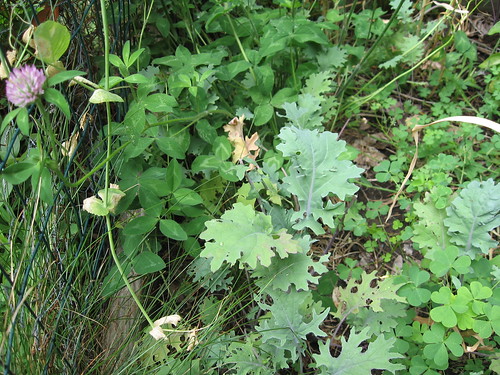Saving the Farm

About 80 percent of U.S. consumers prefer to support sustainable farming, but their tax dollars actually work against the small farms that are more likely to use such techniques. That's what I learned from Steven L. Hopp, in a sidebar in Animal, Vegetable, Miracle.
What's up with that?
It’s because of the Farm Bill, which subsidizes based on volume and crop type. So three-quarters of subsidies go to 10 percent of growers (the big guys), effectively supporting soy and corn crops and making it hard for small farms to stay afloat (including farms in poor countries across the globe...believe it or not, our policies influence "plenty or want" for vulnerable people beyond our borders).
farmaid.org tells us more.
And, like Bread for the World is currently requesting, we can call our representatives and senators BY JULY 17, to have a say in how the new Farm Bill is settled.
They suggest these simple messages to our legislators…
- reform commodity policies that hurt small farmers in the U.S. and abroad
- invest in rural development
How to Find Your Senators and Representatives
To call about the Farm Bill, dial 1-800-826-3688. Connects you to Capitol switchboard. Ask for your representative's office to leave a message with staff. Call your senators too.
Jumbled Garden (red russian kale amidst garlic and clover) photo by L.L. Barkat.
Green Inventions Invitation: If you write a post related to this post and Link It Back Here, let me know and I'll link to yours.
Labels: restoration, stewardship










3 Comments:
I did it. I called my representative and my two senators. I was surprised to get real people on the line. Nice people.
I wish I'd known I was going to talk to a real person. I had this nice little speech I'd worked up, with all the important points, but it seemed odd to just say that.
So I said something like this, "I hear that the Farm Bill is coming up for discussion soon. I wanted to encourage [so and so] to help develop a fairer bill with an eye towards small farmers and investment in rural development."
I hope that was good enough to get the point across. We'll see.
The bigger the farm and more corporate, the more money is sent their way.
Brian... so true. The money does not stay in the community. Neither does the sense of responsibility (though obviously this isn't always the case).
Post a Comment
<< Home